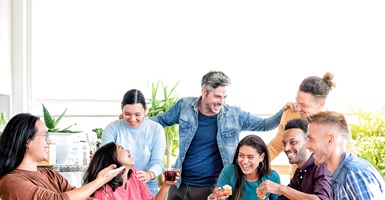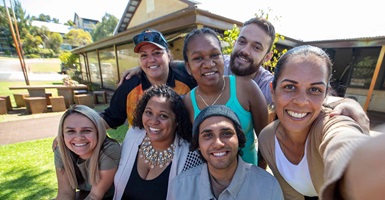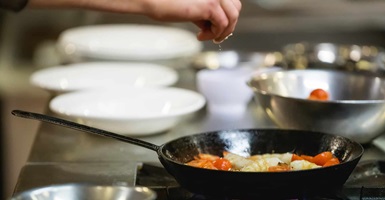It’s a dirty business. On average Australians use 130kg of plastic each year and the biggest offenders are single-use plastics – items that prioritise convenience, but come at a big environmental cost. However, there are ways you can break the plastic habit.
“There are many simple things we as individuals can easily do to reduce the amount of single-use plastics in our lives”, says Kerry Hartskeerl, Senior Educator, Environment and Conservation at Chisholm. “It may seem like these are little or insignificant, but as a collective if we all do them, we can make great changes.”
Say no to straws
“Straws are one of the big issues in environmental sustainability that people can easily do something about,” says Kerry. While many businesses, schools and workplaces are phasing out plastic straws, Kerry recommends people carry their own reusable metal straw – or simply don’t use one.
BYO cup
Whether it’s a latte or a long black, Australians love coffee, with an estimated one billion takeaway cups used each year. However, it’s only recently that consumers have become aware that coffee cups can’t be composted or recycled because of their plastic content. “People should consider carrying their own reusable coffee cups, whether you have a plastic one or a glass one,” says Kerry.
Be water wise
But it’s not just coffee cups that are the issue: Australians buy almost 15 billion plastic bottles each year and although they are recyclable many end up in landfill or waterways. By bringing your own reusable water bottle, you can help slash plastic use – and save a few pennies.
Cull the cutlery
“Plastic cutlery really only lasts one use,” says Kerry. Instead, toss a fork from home into your bag or consider investing in a portable cutlery set, which includes chopsticks, straw, knife, fork and spoon in a pouch. Alternatively, choose lunches that don’t require cutlery.
Go nude
To completely avoid plastic packaging, take a packed lunch. “We always recommend bringing nude food – food without packaging,” Kerry advises. Alternatively, if you really want that takeaway, consider taking your own containers when ordering, and asking vendors to use them instead of disposable packaging.
Unwrap it
From the supermarket to grabbing food on the go, look at what your items are packaged in – and decide if they can be recycled. “If you are going to buy things, buy things in glass or aluminium, as they have really good rates of recycling,” says Kerry. For grocery purchases Kerry recommends wholefood stores where you can buy in bulk, and investing in reusable produce bags rather than using plastic bags on the roll. Also try alternative packaging such as beeswax wraps instead of using plastic cling wrap.
Bag it
While major supermarket chains throughout Australia stopped offering plastic bags a few years ago, there are still plenty of stores that do. Kerry recommends always carrying your own. “Things have changed,” says Kerry. “String and green bags are no longer an inconvenient thing. Now it’s just accepted that people don’t need or use plastic bags.”
This article was first published in November 2019 and has been updated.


